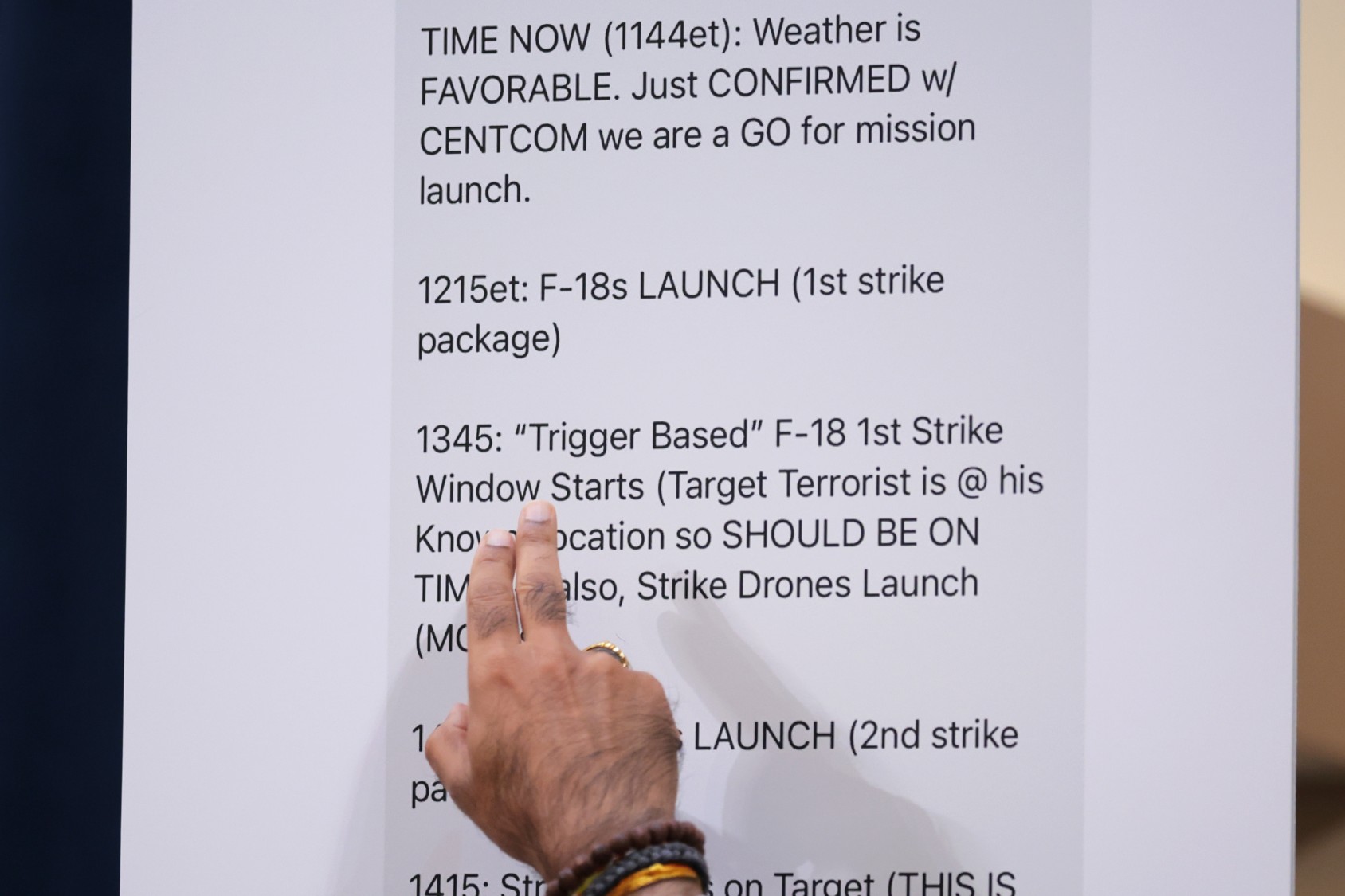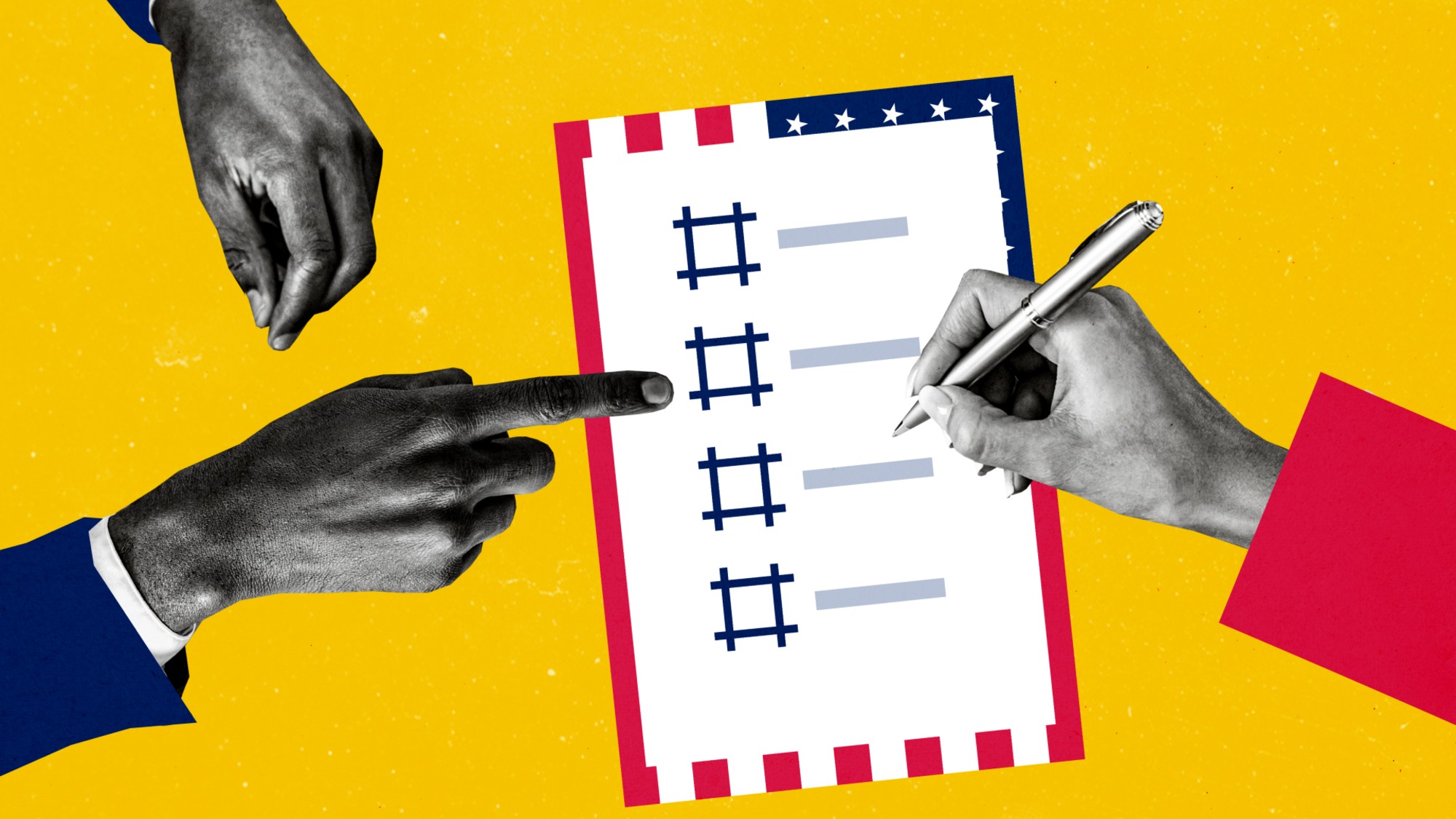Why is the US bombing Yemen in the first place?
The Trump administration's snowballing 'Signalgate' scandal has helped refocus public attention onto one of the nation's least-understood military entanglements


A free daily email with the biggest news stories of the day – and the best features from TheWeek.com
You are now subscribed
Your newsletter sign-up was successful
Washington continues to reel this week after The Atlantic editor Jeffrey Goldberg published a stunning report detailing his experience being accidentally added to a group chat of Trump administration officials. Using the messaging app Signal, they were coordinating a military strike on Houthi targets in Yemen. Goldberg's story, the second half of which was released after the White House insisted there had been no breach of top secret protocols, has become a major scandal for President Donald Trump and members of his Cabinet.
House Minority Leader Hakeem Jeffries (D-N.Y.) on Tuesday demanded in a letter to the White House that Secretary of Defense Pete Hegseth be "fired immediately" for the breach, while Sen. Amy Klobuchar (D-Minn.) raised the possibility of a congressional investigation into the episode. While the political ramifications of this "Signalgate" scandal remain to be fully seen, the incident has brought public attention to a broader and perhaps more materially pressing question: Why is the United States bombing Yemen at all?
Clearing global shipping lanes
The White House has said that strikes against the Houthi group, which have played a key role in Yemen's ongoing civil war, are "due to attacks on Navy ships and shipping" in the Red Sea by the Iran-backed Islamist group, said Military.com. The bombardment will end the "minute the Houthis say 'we'll stop shooting at your ships, we'll stop shooting at your drones,'" said Defense Secretary Pete Hegseth last week to Fox News host Maria Bartiromo before The Atlantic's story was published. The campaign is about "freedom of navigation" and "restoring deterrence," Hegseth said.
The Week
Escape your echo chamber. Get the facts behind the news, plus analysis from multiple perspectives.

Sign up for The Week's Free Newsletters
From our morning news briefing to a weekly Good News Newsletter, get the best of The Week delivered directly to your inbox.
From our morning news briefing to a weekly Good News Newsletter, get the best of The Week delivered directly to your inbox.
The Houthis had "pledged to restart their attacks on Israeli-linked vessels" in the wake of Israel's renewed bombardment of Gaza this month, said Responsible Statecraft. The group's previous attacks, which intensified during the conflict between Israel and Hamas last year, led to "economic disruption," with predominantly European-based commerce being "rerouted away from the region." During those assaults, the group used a "loose definition of what constitutes an Israeli ship, meaning other vessels could be targeted as well," said The Associated Press.
Saber-rattling in Iran's direction
The U.S. attacks are also "meant to send a warning signal to Iran," with whom the president wants to "broker a deal" over nuclear weaponry, said The New York Times. Vice President J.D. Vance seemed, at least in part, to acknowledge this facet of the administration's strategy in the Signal conversation detailed by Goldberg. Given that the majority of the disrupted trade in the region was European, the "strongest reason to do this is, as POTUS said, to send a message," Vance said on Signal.
Iranian backing of the Houthis is "central" to the group's operational capacity, said Andrew Borene, a member of the Atlantic Council's Counterterrorism Project, in a council analysis. With the Houthis having "positioned themselves within Iran's 'Axis of Resistance,'" the U.S. needs a "more comprehensive allied approach" as "airstrikes alone won't be enough to push the Houthis out of Yemen or restore stability to one of the world's most vital trade routes."
A free daily email with the biggest news stories of the day – and the best features from TheWeek.com
Rafi Schwartz has worked as a politics writer at The Week since 2022, where he covers elections, Congress and the White House. He was previously a contributing writer with Mic focusing largely on politics, a senior writer with Splinter News, a staff writer for Fusion's news lab, and the managing editor of Heeb Magazine, a Jewish life and culture publication. Rafi's work has appeared in Rolling Stone, GOOD and The Forward, among others.
-
 Political cartoons for February 16
Political cartoons for February 16Cartoons Monday’s political cartoons include President's Day, a valentine from the Epstein files, and more
-
 Regent Hong Kong: a tranquil haven with a prime waterfront spot
Regent Hong Kong: a tranquil haven with a prime waterfront spotThe Week Recommends The trendy hotel recently underwent an extensive two-year revamp
-
 The problem with diagnosing profound autism
The problem with diagnosing profound autismThe Explainer Experts are reconsidering the idea of autism as a spectrum, which could impact diagnoses and policy making for the condition
-
 How are Democrats turning DOJ lemons into partisan lemonade?
How are Democrats turning DOJ lemons into partisan lemonade?TODAY’S BIG QUESTION As the Trump administration continues to try — and fail — at indicting its political enemies, Democratic lawmakers have begun seizing the moment for themselves
-
 ICE eyes new targets post-Minnesota retreat
ICE eyes new targets post-Minnesota retreatIn the Spotlight Several cities are reportedly on ICE’s list for immigration crackdowns
-
 Judge blocks Hegseth from punishing Kelly over video
Judge blocks Hegseth from punishing Kelly over videoSpeed Read Defense Secretary Pete Hegseth pushed for the senator to be demoted over a video in which he reminds military officials they should refuse illegal orders
-
 How did ‘wine moms’ become the face of anti-ICE protests?
How did ‘wine moms’ become the face of anti-ICE protests?Today’s Big Question Women lead the resistance to Trump’s deportations
-
 Judge blocks Trump suit for Michigan voter rolls
Judge blocks Trump suit for Michigan voter rollsSpeed Read A Trump-appointed federal judge rejected the administration’s demand for voters’ personal data
-
 US to send 200 troops to Nigeria to train army
US to send 200 troops to Nigeria to train armySpeed Read Trump has accused the West African government of failing to protect Christians from terrorist attacks
-
 Trump’s plan to ‘nationalize’ US elections
Trump’s plan to ‘nationalize’ US electionsTalking Points States oversee voting. Will Republicans take over?
-
 Gavin Newsom and Dr. Oz feud over fraud allegations
Gavin Newsom and Dr. Oz feud over fraud allegationsIn the Spotlight Newsom called Oz’s behavior ‘baseless and racist’
